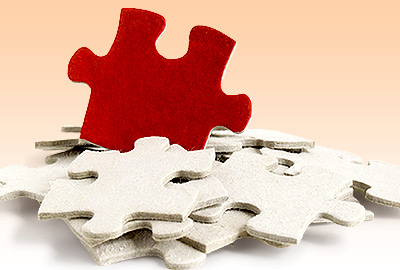
The inability to recall specific information is the basic definition of memory lapses.A problem for many menopausal women, the information involved in these memory lapses can be anything from a person's name to a phone number. Lapses can last anywhere from a few seconds to multiple minutes, and the helplessness that they impose can be very disconcerting.
Understanding memory lapses is important as it is more common than most people think. This symptom can be misunderstood, so it is important to be well-versed in all areas of it. Keep reading for more information.
Definition and Types of Memory
Memory can be defined as the mental capacity to retain and recall facts, impressions, events, and previous experiences. Fleeting periods in which you feel you have temporarily lost this ability can be distressing. Women have two types of memory that are affected by this problem:
Short-term memory

This is the recollection of brief information, such as someone's telephone number.
Recent memory
This refers to memories of daily events and the learning of new information.Other forms of memory include: sensory memory, declarative memory, long-term memory, and procedural memory.
Why Do Memory Lapses Occur?

Age is the most cited reason for a memory lapse. This is because the brain begins to slow as we age. It is often considered as one of the first signs of human degeneration. Research has also shown that menopause is a major cause of this problem.
Many of our body's processes are controlled by our hormones, and making sure they remain balanced can make the difference between a tranquil life and a disrupted one. Because of its effects on the endocrine and nervous systems, the estrogen fluctuations that occur during menopause are a major cause of memory lapses.
Generally, this problem is the result of hormonal imbalance. However, it can also be triggered by a domino effect involving other menopausal symptoms that relate directly to mental retention and concentration. Raised stress levels can also contribute during this period. Estrogen has a strong link with speech, so fluctuations in levels of this hormone can cause problems.
What should i be looking for?
The first symptom you will notice is an inability to remember something, but there are other symptoms that include:

- Inability to concentrate
- Having an idea or word, but not being able to express it clearly or quickly
- Blurred thinking
All these are frustrating signs of memory lapse, and they need to be dealt with effectively. There are a number of triggers for memory lapses, which may include:
- Alcohol
- Vitamin deficiencies
- Lack of sleep
- Diet
- Workload
More about Memory Lapses
Once you understand memory lapses you will be able to treat them. Using alternative medicines and implanting lifestyle changes are helpful ways of managing them. However, if symptoms progress or worsen, a trip to the doctor is advised. Click on the following link for more information about alternative medicine for memory lapses.
Sources
- Dr. Devi, Gayatri.(n.d). "Memory Loss, Estrogen, Menopause & Alzheimer's Disease". The New York Memory Services.Retrieved from www.nymemory.org.
- Dr. Devi, Gayatri; Hahn, Katherine; Massimi Stephen; Zhivotovskaya, Emiliya.(n.d). Prevalence of memory loss complaints and other symptoms associated with the menopause transition. Gender Medicine, 2005, vol. 2.
- Myers, Catherine E. "Categories of Memory Systems".(n.d). Memory Loss & the Brain.Retrieved from www.memorylossonline.com.
- News-Medical.Net.(n.d)."Memory loss and menopause".Retrieved from www.news-medical.net.



